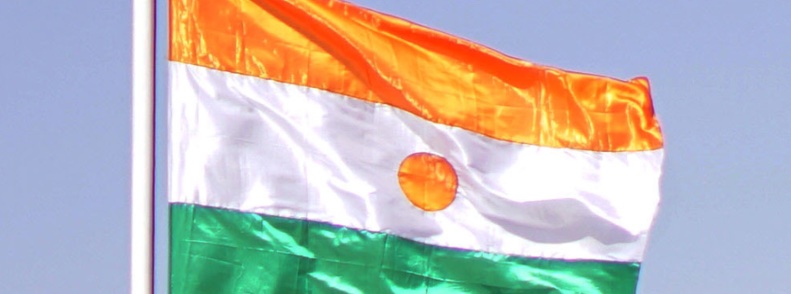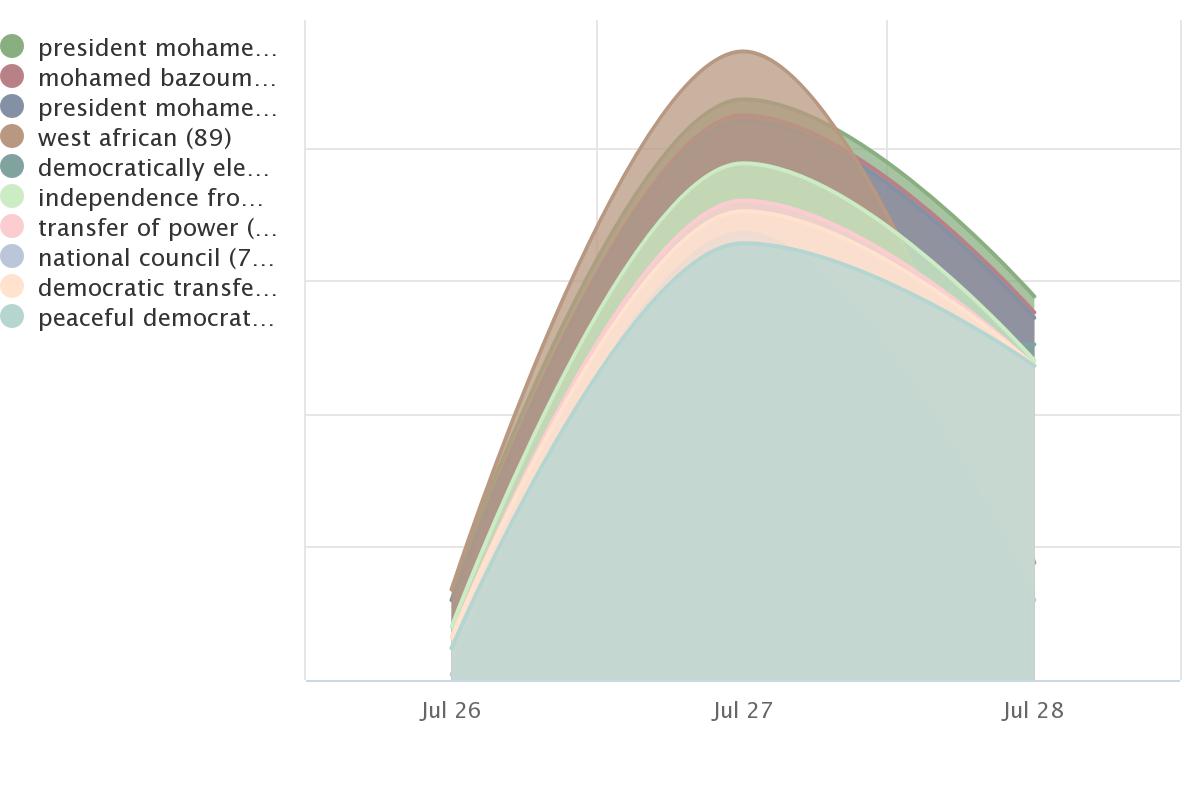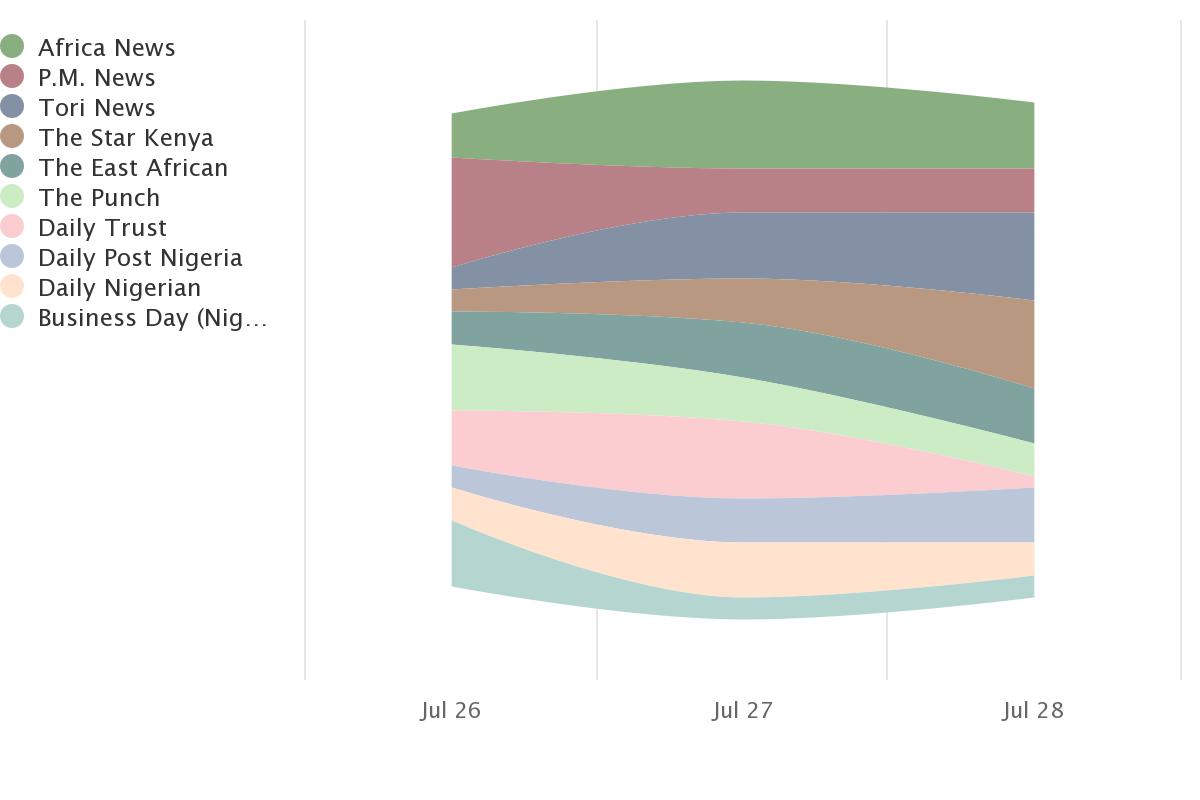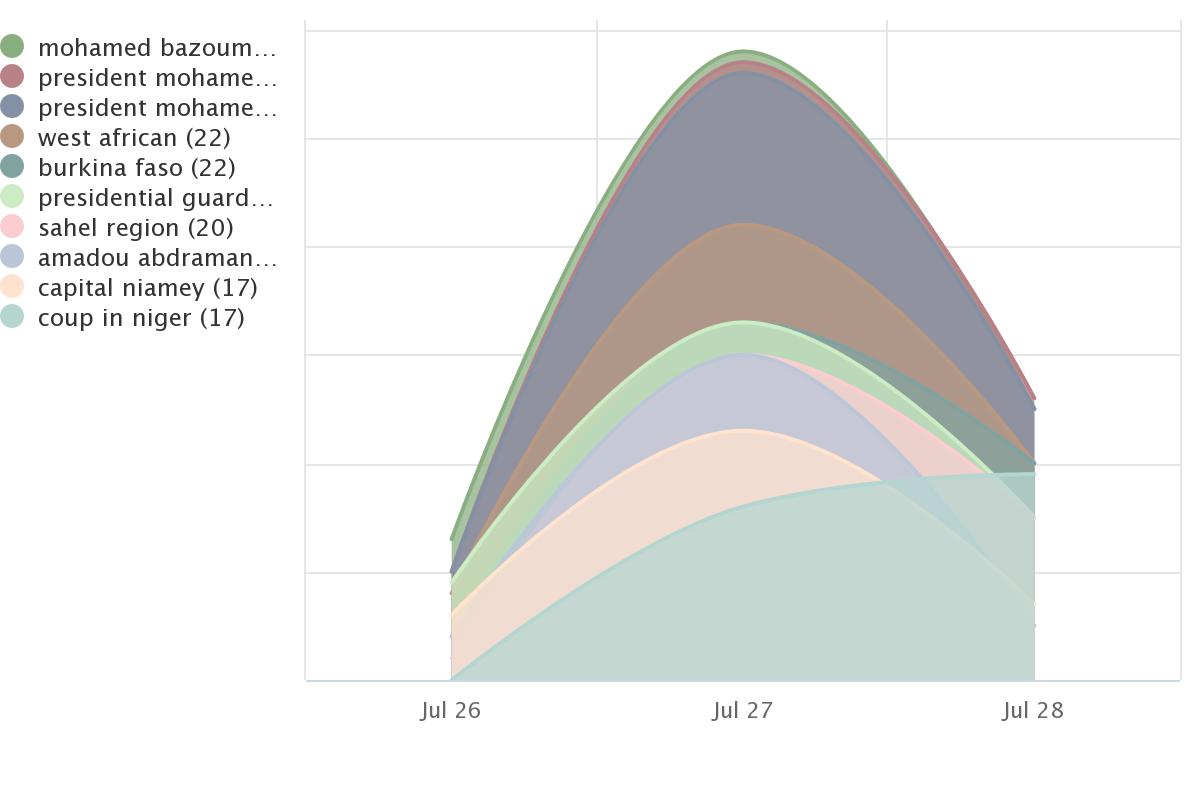
In our Kudzu Narrative Intelligence Brief, we analyze the media narratives surrounding President Mohamed Bazoum's election in 2021, which marked Niger's first peaceful and democratic transfer of power since its independence from France in 1960. Additionally, we examine the reports of a coup attempt that was thwarted just days before Bazoum was sworn in, leading to concerns of political instability in the region.
Our Kudzu Narrative Intelligence briefs auto-update every few hours with fresh analysis:
The media narratives surrounding President Mohamed Bazoum's election and the coup attempt in Niger shed light on the political landscape in West Africa. Key points to consider include:
The media narratives focus on the coup attempt in Niger and its potential implications for political stability in the region. Key points to consider include:
The media narratives highlight the international response to the coup attempt in Niger. Key points to consider include:
In this Kudzu Narrative Intelligence Brief, a comparative analysis of the top surfaced keywords from different categories reveals interesting insights. The keywords found only in sources in U.S. media are focused on the transfer of power, democratic processes, and social governance. These keywords highlight the importance of peaceful democratic transfer and the role of elected leaders in maintaining stability. The presence of terms like "mutinous soldiers" and "attempted coup" suggests a narrative of political unrest and challenges to the democratic system. Additionally, the mention of "waving Russian flags" and "news network France" indicates international involvement and the potential impact of foreign actors on the political landscape. Overall, these keywords emphasize the significance of democratic values and the potential threats to them.
On the other hand, the keywords found only in sources in Sub-Saharan media focus on regional and national elements. Terms like "constitutional order," "Niger Republic," and "West Africa" highlight the specific context of the region. The mention of "President Bola Tinubu" and "Patrice Talon" indicates the prominence of regional leaders and their influence on the narrative. These keywords suggest a focus on the internal dynamics and regional implications of the events in Niger. The absence of international actors or terms related to global affairs indicates a more localized perspective in Sub-Saharan media sources. This highlights the importance of regional perspectives and the specific challenges faced by countries in the region.
In European media sources, the keywords provide insights into the global perspective on the events in Niger. Terms like "Sahel region," "Antony Blinken," and "African Union" indicate a broader focus on regional security and international alliances. The mention of "military coup" and "coup d'etat" suggests a narrative of political instability and the potential consequences for the region. The presence of "Russia-Africa Summit" highlights the role of Russia in the African context and its potential impact on the events in Niger. These keywords indicate a global perspective on the situation, emphasizing the interconnectedness of regional dynamics with international affairs.
In conclusion, the surfaced keywords from different media sources provide valuable insights into the competing narratives surrounding the events in Niger. The keywords found in U.S. media highlight the importance of democratic processes and potential threats to them. Sub-Saharan media sources focus on regional and national elements, while European media sources provide a global perspective on the situation. Understanding the prominence of these keywords and their relation to the competing narratives helps to unravel the complexities of the events in Niger and their broader implications.

Sources in U.S. Media

Sources in Sub-Saharan Media

Sources in European Media
Note: Kudzu Narrative Intelligence briefs update every few hours. Very likely, the Narrative Analysis data visualization depicted in the graphic above will have changed as well.
Image Credit for Article Header: Maulucioni, CC BY-SA 4.0, via Wikimedia Commons